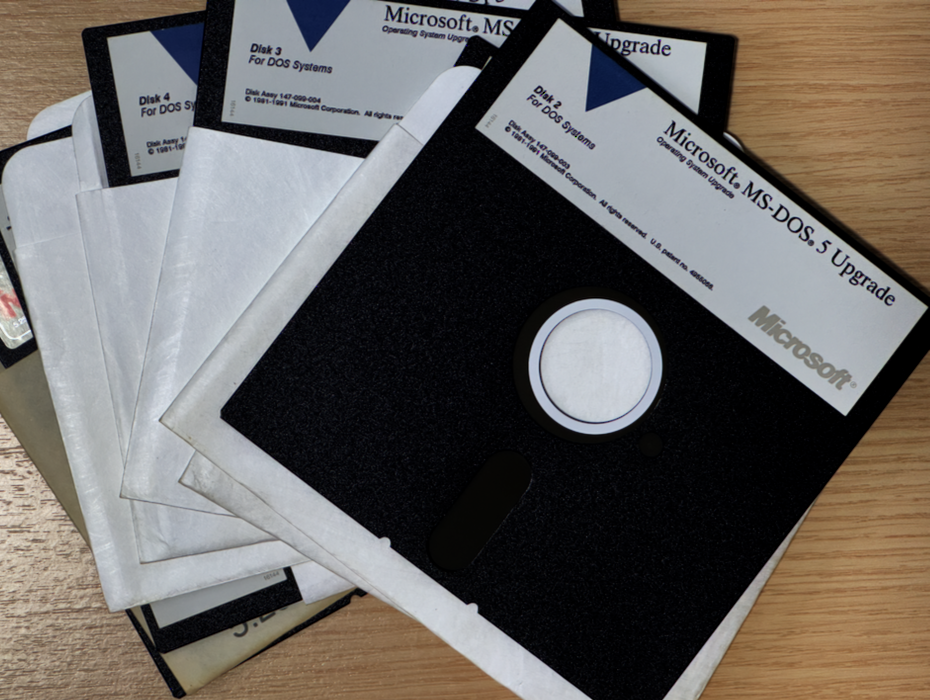
eXtensions - Wednesday 17 July 2024
By Graham K. Rogers

I have been experiencing problems exporting RAW images from Photos on the MacBook Pro, so checks are on the way. The EU is filling its US Tech attacks bingo card by going after X, and Elon Musk is ticked off. A couple of unusual Apple Watch life saves this time. Some military systems still need 8" floppy disks. Most of us have moved on to more modern external storage media.
When I came back from my break in the south of Thailand, I had a couple of hundred photographs. These were mainly RAW images from my Nikon D850 camera. Each is around 44 MP (8170 x 5447) with a file size of just over 70MB. As I only took the iPad Pro with me, all images were transferred from the camera and then uploaded automatically to iCloud. They were then available on all my other devices including the Macs when I returned to Bangkok.
There was a problem, however, when exporting versions of the images from Photos on the M1 MacBook Pro. I usually export PNG files (sometimes JPEG), but whether they had been edited or not, the export did not finish and Photos crashed. I did try similar files - images that I had taken before - and these were exported correctly. Fortunately there were ways round this, using apps on the iPad or the Mac, such as Pixelmator, although selecting the right size is slightly less straightforward.

The M1 Mac mini in the office had no such problems and I could export any of the recent images with no ill effects. I had already restarted Photos and the MacBook Pro as a first check, so the fault appears to lie in the Mac itself or the Photos app. A basic check is the integrity of the library. To Repair this, the app needs to be restarted while the user holds down the Option and Command keys. I tried this first on the Mac mini in my office. A panel appears and two options are available: Quit or Repair. The process runs through a series of checks before rebuilding the Library, then opens Photos. Any changes are then transmitted to the iCloud library if that is being used.
There has been some good news for Apple recently with sales of Macs growing some 20% (Ed Hardy, Cult of Mac). It is looking good in India too, where Apple now has a strong presence, with sales of $8 billion in the last fiscal year: a 33% jump in revenues, up from $6 billion a year ago (Rajesh Pandy, Cult of Mac). A lot of this is from sales of iPhones where consumers have usually favored handsets at the lower end of the market.

I spent some time in the last two items I put online discussing the problems Apple and other US tech companies continue to have with the EU (Sunday Comment 7 July and Friday Comment 12 July. Now, it appears Elon Musk is in Margrethe Vestager's sights over the opening up of Blue Tick access on X. A report on RTÉ News tells us that the EU claims Musk is "misleading users with its blue checkmarks for certified accounts, and is also violating EU content rules".
 This had been for certified accounts but now anyone can have a blue tick with a subscription, which I guess would be verified so that X receives the fees. Like other transgressions by tech companies this is covered by the Digital Services Act, which seems to treat social networking sites and operating systems like public utilities. A number of commentators are of the view that the EU sees social networking sites as in the public domain as they appear to do with operating systems, like iOS. They clearly are not (as supported by case law in the USA concerning censorship and copyright).
This had been for certified accounts but now anyone can have a blue tick with a subscription, which I guess would be verified so that X receives the fees. Like other transgressions by tech companies this is covered by the Digital Services Act, which seems to treat social networking sites and operating systems like public utilities. A number of commentators are of the view that the EU sees social networking sites as in the public domain as they appear to do with operating systems, like iOS. They clearly are not (as supported by case law in the USA concerning censorship and copyright).
Martin Peers in The Briefing an email newsletter from The Information is dubious about this and says the change in blue tick accessibility was hardly a secret: "But X hasn't kept that policy change secret. People using the service surely know by now they can't rely on the checkmarks". He also asks, "What regulator has previously gone after a company for screwing up its own products?" Needless to say Musk had a typical knee jerk reaction about the EU decision, calling this "an illegal secret deal" adding, "[I]f we quietly censored speech without telling anyone, they would not fine us." I feel some (rare) support for Musk in this case.
I have been using the Apple Watch for several years to monitor my health. As one ages, this becomes more important. With this, and other inputs to the iPhone (weight, temperature, et al) I am able to see if things are not as I would like and then head for the doctor. With the Watch I can keep an eye on the heart rate and blood-oxygen levels. I used to monitor blood pressure with an IOT device, but now rely on occasional doctor visits. I also monitor exercise (not much these days) and fluid intake. The Watch also has a fall detector that usually sends a warning if I move to fast backwards in an office chair, or turn round fast. Mercifully, I have not yet fallen to test it out fully, but with the other detections, have had to stop the device phoning out.

Even though the Watch is waterproof and people swim while wearing the device, I take it off when showering and try to minimize its exposure to water (including the heavy rains we have here), but I am being over-cautious. This week Lloyd Coombes (iMore) reports on a user who lost his Watch a year ago while diving in the Caribbean in June 2022. He turned on the feature in Find My that marks it as lost and was somewhat surprised when, having found the Watch another diver contacted him in December 2023. The Watch was still working, despite the time submerged.
In another, more recent, incident, a swimmer was swept out to sea by strong currents off the coast of Australia, but accessed the SOS feature on his Apple Watch Ultra (long press on the side button) to alert authorities (David Snow, Cult of Mac). He was able to contact emergency services and stayed online for an hour (quite a feat in itself) and the precise location data from the Watch allowed the rescue services to home in on the swimmer.
As well as other series on the Apple TV+ platform, which are due to arrive soon (Slow Horses, Severance), the second season of Silo is also slated for its release some time soon. David Snow (Cult of Mac) writes that, "The show's stars and producers will discuss season 2 details at San Diego Comic-Con July 27". It is expected that a release date will be announced then. The end of Season 1 showed several other silos, but whether they were occupied was left to the imagination of the viewer. It has also been revealed that Series 3 of Loot is on the cards. I was left unmoved by Series 1 and watched none of Series 2. I was however pleased to see the renewal of Presumed Innocent, currently in Series 1 Ed Hardy, Cult of Mac). Jake Gyllenhaal will return, but this will have a new story.
When I first used PCs (on a writing program at Illinois State University) teaching students, the Zenith twin-floppy disk computers used 5.25" disks and I also used these when I returned to London in the training department of a City accountant (Robson Rhodes - long since gone). Although the earliest Macs were appearing and used the 3.5" floppy, a little earlier I had seen 8" disks. Apparently, the German Navy is still using these for data-acquisition systems in 4 ships. The3se were commissioned between 1994 and 1996 and the systems used to control the ship are critical. They continue to use 8" floppies because, "despite modern alternatives being available for years . . . established systems are considered more reliable". Sharon Harding (ArsTechnica).
The article notes that the US Air Force had faced a similar problem and replaced the 8" disks with SSDs. It also mentions that Japan only just abandoned these disks last month, but that San Francisco is to use 5.25 disks for its metro light rail until 2030. Industry use is also mentioned. Until only a few years ago, the USA controlled its military nuclear program (including the silos with ICBMs) with similar old technology. I do not have any 8" disks, but I do still have a few old 5.25 floppy disks, including the MSDOS 5 update disks, from a time before I moved to Macs. The MSDOS 6 update used 3.5" floppies and they are still around here somewhere.

Graham K. Rogers teaches at the Faculty of Engineering, Mahidol University in Thailand. He wrote in the Bangkok Post, Database supplement on IT subjects. For the last seven years of Database he wrote a column on Apple and Macs. After 3 years writing a column in the Life supplement, he is now no longer associated with the Bangkok Post. He can be followed on X (@extensions_th). The RSS feed for the articles is http://www.extensions.in.th/ext_link.xml - copy and paste into your feed reader.

For further information, e-mail to
Back to
eXtensions
Back to
Home Page